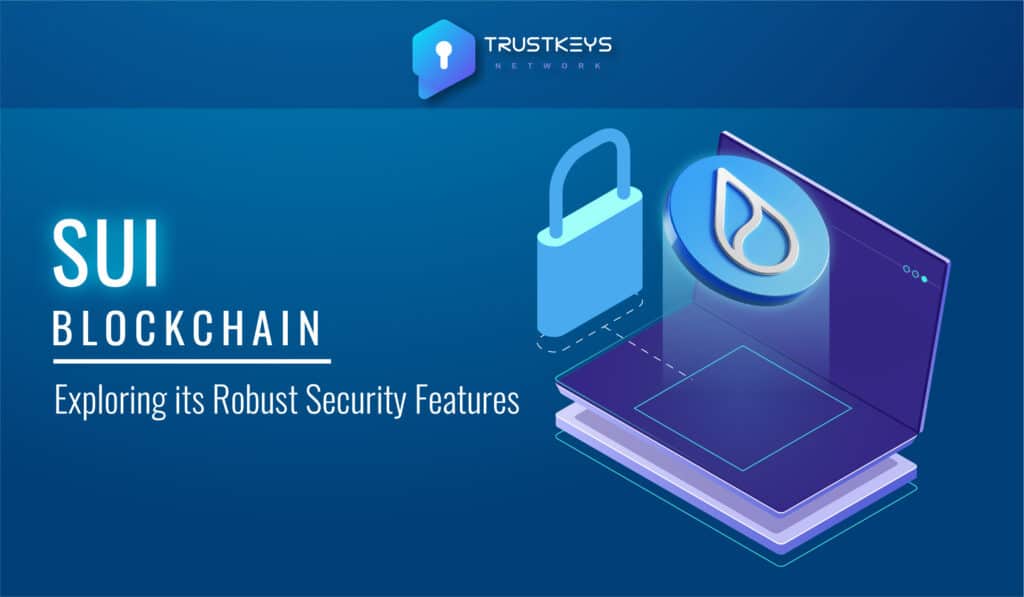Introduction
Blockchain technology has revolutionized the way we think about data security and privacy. The Secure User Identity (SUI) Blockchain is one of the most secure and reliable blockchain technologies in the world. It is designed to provide a high level of security for users’ data, transactions, and personal information. In this blog post, we will discuss the top security features of SUI Blockchain.
Peer-to-Peer Network
One of the most important security features of SUI Blockchain is its peer-to-peer network. The SUI Blockchain network is designed to be decentralized, meaning that there is no single point of failure. All nodes on the network are equal, and each node maintains a complete copy of the blockchain ledger. This ensures that no one can tamper with the data on the blockchain, as all nodes would have to agree on any changes made to the ledger. In addition to that, SUI Blockchain uses a permissioned network, meaning that only authorized parties can participate in the network. This further enhances the security of the network, as only trusted nodes are allowed to validate transactions and add them to the blockchain.
Consensus Mechanism
Another key security feature of SUI Blockchain is its consensus mechanism. The consensus mechanism is the process by which nodes in the network agree on the state of the blockchain. SUI Blockchain uses a consensus mechanism called Proof of Stake (PoS), which is more energy-efficient and secure than Proof of Work (PoW) used by other blockchains. In PoS, nodes are chosen to validate transactions based on the amount of cryptocurrency they hold. This ensures that only trusted nodes are allowed to validate transactions and add them to the blockchain. In addition to that, SUI Blockchain uses a hybrid consensus mechanism, which combines PoS with a Byzantine Fault Tolerance (BFT) algorithm. This makes the network even more secure and resilient to attacks.
Encryption and Hashing
Encryption and hashing are two essential security features of SUI Blockchain. Encryption involves the use of algorithms to scramble data so that it is unreadable to anyone who does not have the key to decode it. SUI Blockchain uses industry-standard encryption algorithms to protect users’ data and transactions. Hashing, on the other hand, involves the use of algorithms to generate a unique, fixed-length string of characters that represents a piece of data. This makes it possible to verify the integrity of the data without actually reading it. SUI Blockchain uses hashing algorithms to ensure the integrity of the data on the blockchain. In addition to that, SUI Blockchain uses a Merkle tree structure to organize the data on the blockchain. This makes it possible to verify the integrity of the entire blockchain with just a small amount of data.
Smart Contract Security
Smart contracts are self-executing contracts with the terms of the agreement between buyer and seller being directly written into lines of code. Smart contracts are a key feature of blockchain technology, and they are used to automate many processes on the blockchain. However, smart contracts can also be a source of security vulnerabilities if they are not properly designed and audited. SUI Blockchain uses a smart contract language called Solidity, which is designed to be secure and reliable. In addition to that, SUI Blockchain has a dedicated team of security experts who audit all smart contracts before they are deployed on the network.
Conclusion
SUI Blockchain is a highly secure blockchain technology that is designed to protect users’ data, transactions, and personal information. Its decentralized and permissioned network, PoS and BFT consensus mechanism, encryption and hashing algorithms, Merkle tree structure, and smart contract security make it one of the most secure and reliable blockchains in the world. As the world becomes increasingly digital, the need for secure and reliable blockchain technologies like SUI Blockchain will only continue to grow. SUI Blockchain is not only a secure and reliable blockchain technology but also a sustainable and eco-friendly one. Its energy-efficient consensus mechanism and permissioned network make it an ideal choice for businesses and organizations that value security, reliability, and sustainability.
